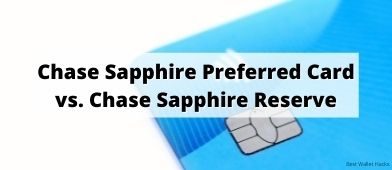No!
I’m willing to bet that on more than one vacation, someone has come up to you and offered you something free to sit in on a timeshare sales pitch.
If you ever wondered what that experience was like, today is your lucky day! I sat in one of these when I was fresh out of college. We’ll discuss what a timeshare is, followed by a pitch experience I endured in 2004, followed by some of the math. Then, we’ll round it out with thoughts from a friend of mine who loves his timeshare and uses it often.
Table of Contents
What is a Timeshare?
The basics of a timeshare are simple – it’s an agreement where you share in the costs of using a piece of property.
It’s as if you and 51 of your friends joined together to buy a vacation property and each chose a week in which you could use it. You pay an up-front cost to buy the property then an annual fee for upkeep, repairs, maintenance, and other costs. You’ll also have to add in some administrative costs for scheduling and property management.
Except you’re all strangers.
The basic gist of timeshares is pretty simple, but how they’re structured can change. Timeshares usually come in three flavors – right-to-use, fee-simple, and a points system/vacation club.
With a right-to-use timeshare, you don’t own the property, but instead, have a lease agreement with the timeshare to use the property for a set period of time each year over a set number of years. During the time you have this right, you pay all the fees and you can rent (sub-lease) your time, give it away, or sell the right to use ownership.
With a fee-simple timeshare, you are buying the property for a specific period of time each year. You pay the purchase price and your piece of the fees, which includes maintenance but also property taxes and other special assessments (capital improvements, etc.).
With a point system or vacation club, you’re buying points in the vacation club. You then use these points to buy your vacations, which you can use at other properties in the club and other times of the year.
(I wrote a version of this post over ten years ago and what follows are my recollections back then, not right now in 2020)
What is a Timeshare Pitch Like?
This happened to me on a vacation to Las Vegas, NV, in 2004 outside Treasure Island. The pitch was for Polo Towers, which is a piece of property closer to the Mandalay Bay end of the Strip than the TI end. Being young college kids, we agreed to go do it in return for eight tickets to Folies Bergère at the Tropicana, which was a classic Las Vegas third-tier show.
Back then, Polo Towers was its own entity, but nowadays, it appears to be owned by Diamond Resorts International: a timeshare company with almost 400 locations around the world.
The pitch was three hours of aggressive sales marketing of the Polo Towers and their vacation club/network. The price started at around $15,000 and soon dropped to somewhere in the $3,000-$4,000 range by the third hour. We had fibbed about our credentials (you needed to be 23+ and have a salary greater than $40,000 – I was the only one who qualified) because, otherwise, only I would qualify since the others were still in school (but they didn’t check or care).
We were handed off twice and different sales pitches were used (nice guy peddling a good deal, not-as-nice guy peddling a great deal, mean lady who was pissed off because we weren’t jumping on an awesome deal). Eventually, we freed ourselves after they realized we weren’t going to be pressured into this “deal.”
After they gave us our tickets, there were salespeople at the exits offering $200 for the four of us to go back the next day! Once we realized it was a three hour battle, we declined because we valued our three hours way more than $50 a person. We went into it thinking it was only going cost us an hour!
Would I do it again? Maybe when I was in my twenties, definitely not today.
If you want to do it for the freebie, make sure you can resist the pitches. Only agree to the freebie if you’re willing to say no to people who will grow increasingly aggressive as the hour goes on. If you can’t stop your impulse buying, do not do this.
When I returned home from the trip, I had a few questions and so I wrote them down, collected the answers, and here they are.
What’s the deal with timeshares? Why are companies willing to give you all sorts of free stuff just for you to sit down and listen to a timeshare presentation?
They do it because they can make a ridiculous amount of money if only a small percentage of people buy a timeshare. This page is designed to answer the lesser-known questions as to how timeshares work, not necessarily the better-understood parts of timeshare types, trading timeshare rights, etc.
I wanted to know about how the soft underbelly works. How they can afford to give so much stuff away? What is the resale value of timeshares? What are some other quirky things you probably didn’t know and didn’t know how to ask about timeshares?
Here they are:
How much does a timeshare cost?
This will vary based on where the timeshare is located, the network it’s in, and what weeks you own.
The American Resort Development Association (ARDA), which is a timeshare trade group, estimates that the average timeshare costs $21,455 with an average annual maintenance fee of $1,000 (from their 2019 State of the Shared Vacation Timeshare Industry: United States Study).
This means that for every week, the typical interval, you’re paying $142 a day (maintenance fee divided by seven days) on top of the $21,455 you’ve already paid to acquire the rights!
How can they afford to give away such good incentives to listen?
The developer creates a timeshare by buying land and developing a resort, then selling units to people willing to buy them. Some of these developers are shady and cheats (the earlier bunch in the industry were less than scrupulous operators and that’s why timeshares have a bad reputation), but some are well known like Disney’s Vacation Club.
Once done building, they start their marketing program to peddle the units to buyers and will spend upwards of 50% of the final sale price of a unit on marketing alone. They might bring in an outside outfit to do the marketing, but eventually, when you pay $10,000 for a timeshare, about $5,000 was on marketing.
They can give away so much stuff because they are charging a ton for the timeshares. They can earn more if you decide to use their financing to purchase the timeshare.
Finally, timeshares also have a property management company component where the company can earn even more by managing the property. This is required because you need someone to coordinate the reservations, maintain the property, repair it, and more.
What is the resale value of timeshares?
Mostly terrible.
Supply far exceeds demand, as evidenced by how the original developers are giving away huge freebies just for people to listen to pitches. An individual can’t possibly compete on that level with developers! Add that to how you can’t easily research how similar units are selling, as you would in traditional real estate, and you’ll find you’re in a very bad situation. This is the perfect buyer’s market. That means if you want a timeshare, buy it used!
How can I buy it used?
If they lose a lot of value and are hard to sell, can’t you take advantage of it by buying them on the secondary market? Yes!
The best way is to buy timeshares in resorts by well-run operators and to buy them directly from the owners. This cuts out the middleman and any associated fees and markup. You can usually find people wanting to see online if you search for them (try Redweek or eBay).
The same sites, like Red Week, also show rentals, too, so you can always rent it for a week to confirm you like it!
If you know where you want the timeshare, you can call the resort directly. They may have listings of units looking to sell. There are also resale brokers specializing in timeshares, otherwise, just do a search online – there are a million brokers.
Shoot! I bought and now I don’t want it, help! How do I cancel a timeshare purchase?
Usually, the contract will have a cooling-off period of fewer than two weeks. Check the contract, and if you still have time, cancel!
Past that time? Chalk it up to buyer’s remorse. Enjoy the vacation because it beats getting a hotel at the last minute and paying a fortune. Timeshares, in general, aren’t a bad idea (otherwise no one would get them), but playing the waiting game is often the way to go. Always wait if you’re hesitant because you can: 1) always get more freebies to listen to a presentation and 2) get the next timeshare offer.
This timeshare is too good to be true! How is it this cheap?
Either no one else wants that timeshare, or you’re really lucky. Actually, there are annual fees, maintenance fees, usage fees, trading fees (say if you trade resorts), and other various fees you probably aren’t thinking of.
Timeshares are a good deal (if you don’t mind being “forced,” in some cases, to use a vacation each year) for some, so the fees are overcome.
Another thought is that perhaps you are being scammed. If it sounds too good to be true, walk away.
They will be pushy, but just walk. After, do an internet search to see if it shows up because, chances are, it wasn’t tried on you first and someone else blew the whistle. Worst case? You don’t get a timeshare and you can do it some other time. No big loss.
Why Are Timeshares Worth It?
The reality with any product is that it’s not worth it for some, but it’s worth it for others. I know someone who got a timeshare and while they wouldn’t say it’s a “great deal,” they love it.
What follows is courtesy of Lazy Man and Money:

Almost every personal finance guru will tell you that it rarely makes sense to buy a timeshare. They, often, cite scary fine print, lack of travel flexibility, and difficulty in selling the timeshare. These are legitimate concerns. My wife and I bought a Marriott timeshare in Aruba more than 15 years ago. The fine print and lack of travel flexibility were our major concerns. We figured selling a premium brand timeshare (Marriott) in a premium location (Aruba) wouldn’t be difficult.
We happened to be traveling with my best friend who happened to be a real estate lawyer. He had bought three years earlier, and it gave us confidence that we shouldn’t be concerned about the fine print. Marriott has a flexible timeshare season, so we weren’t locked into a certain week every year.
Finally, we have never seriously considered selling the timeshare. Aruba’s slogan is One Happy Island and year after year it delivers on that promise for our family. If you ever find yourself thinking of going to Aruba, here are some money saving tips.
Why Timeshares Work for Us
- The numbers are neutral – I’ve run the numbers numerous times over the years and come up with the same result. If we took the money we spent to buy it and put it in investments earning 5-7% a year, we could use those investment gains to buy what we have now. The timeshare salesman may sell you on the rising cost of vacations with inflation in the future. However, we’ve found the maintenance fees go up a similar amount to negate it. If we sell it down the line, we should be able to do well with the increase in value.
- We have plenty of time to go away – Ten years ago our thinking was, “My wife gets six weeks of vacation from her military job. I work from home. We know we are going to be using this vacation.” Everything gets more complicated with kids. Their school vacation doesn’t line up well with cheap flights. We have less flexibility now than ever before, but it still works for us.
- We have plenty of time to go away – I didn’t know it at the time, but recently I’ve come to terms with my chronic Seasonal Affective Disorder (S.A.D.). The best cure for that is a week away on a sunny island with no deadlines.
- It forces us to take a vacation – Sometimes people get in a “work, work, work” mode and that’s simply not healthy. By having a timeshare, we are “forced” to take a vacation each year, which is enough of an excuse to get us planning and out the door. If you’re a work junkie, consider this: You’ll be more productive when you get back after a week of fun in the sun.
- It motivated us to see the world – We don’t travel much. My wife’s work is demanding, and now, we have two kids. However, back in 2009, we had an opportunity to visit Australia and Thailand in an affordable way. Travel to Thailand was cheap, and we were given an opportunity we didn’t want to pass up. We traded half of our timeshare (we have two rooms) for a suite fit for an emperor. My wife did a cartwheel in the bathroom! We can always travel to different places, but I find it hard to gamble on an unknown when I have already found my happy place.
These reasons make owning a timeshare right for us. However, that doesn’t mean it is right for you.
Like any purchase, a little research and a few smart buying decisions go a long way.
The Smart Way to Buy a Timeshare
- Buy on the Resale Market – You may be able to save 30% or more by looking for timeshares on sites like eBay or Red Week. Buying directly from the builder means you’re paying for all the marketing and freebies they’re offering people just to listen to their pitch. It’s estimated that 50% of the price of a timeshare goes to cover marketing costs. This is the one big mistake that we made.
The only possible catch with this is that most timeshares have a first right of refusal. That means that if you find a bargain of a $30,000 timeshare for only $5,000, the corporation may choose to pay the same $5,000 and “steal” it from you. - Pick a Property with Staying Power – You want to pick a name that’s going to be around. We didn’t think Marriott was going to go bankrupt any time soon, so we trusted the brand name. There used to be an old saying that nobody ever gets fired for buying IBM. Similar logic applies here.
- Choose a Deeded Timeshare Property – We own the Marriott timeshare for life. We can pass it on to our kids and their kids’ kids. There are some timeshares that are only “right to use” and expire after a set number of years. We like how we own property in Aruba.
- Pick One with Flexible Weeks – Some timeshares are for specific weeks of the year and only that week. If you buy week #42 and you can’t go on that week, you have to trade it, sell it, or lose it. With our timeshare, we can choose any week within a six-month window. That flexibility is crucial. We pick when we go, not the other way around.
What do you think of timeshares? Good value or a waste of money and time?




Years ago, when I attended one of these timeshare sales pitches, I met a couple who told me their timeshare ‘secret’. They told me that they love to go to the pitches where you get to stay at the resort for three days, where you get a chance to enjoy all the amenities: golf, swimming, tennis, meals, etc. What they do is when the first sales person starts talking to them, within five minutes, they tell the salesperson what a great deal it sounds, and ask where they can sign. They sign the contract, and spend three days of fun… Read more »
whaaaaaaaaaaaat??? is this true? I have to do some research.
In a brief Google search, I found this post on a law firm’s site – http://www.paschalllaw.com/california-timeshare-rescission.html
I personally believe they are a waste. Witt so many offerings (pre-pandemic) from Airbnb, Vrbo, miles and points from travel hacking why in the world would you lock yourself to a timeshare? It just doesn’t make sense to us. My parents bought one and eventually couldn’t sell it and with annual fees actually ended up giving it back. The resale value was almost nothing. A lot of Venezuelans had timeshares but with the economy and devaluation in our currency everyone was forced to give them back due to fees. If you’re interested in one you absolutely should get it from… Read more »